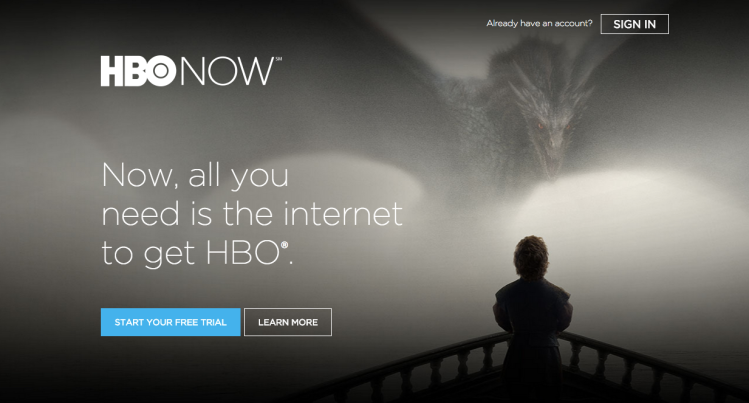If you, like many others, have been surreptitiously using an HBO Go password from a friend or family member, don’t worry: Even though it just launched its online-only Now service, HBO isn’t likely to begin cracking down anytime soon on people like you.
A year ago, HBO CEO Richard Plepler famously said that his company not only didn’t care that people shared account passwords for HBO Go (the online service available to existing HBO cable subscribers) but in fact the network encouraged it. BuzzFeed quoted Plepler as saying at the time:
“It’s not that we’re unmindful of it, it just has no impact on the business.” It is, in many ways, a “terrific marketing vehicle for the next generation of viewers,” he said, noting that it could potentially lead to more subscribers in the future. … “We’re in the business of creating addicts.”
The key part of that statement, of course, was that HBO wanted to create “addicts” for its service, which offers current shows like “Game of Thrones,” “Silicon Valley,” and “Veep,” to name a few, as well as a rich archive that includes “The Wire,” “The Sopranos,” “Six Feet Under,” “Rome,” and more, plus a constantly rotating collection of feature films, documentaries, sports, and more.
But implied in that statement was the reality that, at that time, there was no way for cord-cutters (people without traditional TV service) to access HBO without someone’s HBO Go password.
June 5th: The AI Audit in NYC
Join us next week in NYC to engage with top executive leaders, delving into strategies for auditing AI models to ensure fairness, optimal performance, and ethical compliance across diverse organizations. Secure your attendance for this exclusive invite-only event.
As of today, of course, that’s no longer true. HBO has launched Now, its $15 a month online-only service available on Apple TV, iOS, and the web, and for the first time, users without cable have a way to legitimately access the network — and, more importantly, to pay for it. The question, then, is whether HBO will choose to use the opportunity to crack down on Go password sharing?
“The key difference now [is] that there is little excuse for consumers not to subscribe to an HBO offering,” said Greg Ireland, IDC’s research director for multiscreen video. “Insofar as HBO Now is a great option for cord-cutters and a great development that responds to a market need, one can imagine more stringent policies being enforced.”
But Ireland also noted that HBO’s entry into the online-only word is “evolutionary,” suggesting somewhat of a wait-and-see attitude on the network’s part. “Consumer awareness and usage will grow,” Ireland said, “the new service will roll out and mature, and surely policies and objectives with respect to discouraging or preventing password sharing will likewise evolve.”
HBO could not be reached for comment.
But for its part, the network has sent signals that it is thinking of Now much in the same way as Go — meaning as something for the family to use.
“The number of videos that you and members of your household can play at the same time with HBO Now is similar to HBO Go,” the network wrote in its Now FAQ. “Like the traditional broadcast HBO subscription, we view it as a household subscription. However, if we see a level of sharing that affects our business, there are other tools of enforcement available to us.”
To Alan Wolk, an analyst at The Diffusion Group, the question of who’s actually a member of the family is the one that could make HBO hold off on limiting Go password sharing in the short term.
“From a technology perspective, it’s hard to know how to crack down,” Wolk said. “Is the kid in college a family member. Is she home for the summer? What if you have a family of six? How do you know when [the password] is being shared?”
The obvious way HBO could attack Go password sharing would be to impose stricter limits on how many people can log in to the service on a single account at the same time. Currently, it’s easy for more than three people to do so. But if HBO wanted, it could cut that number to two, or even one. It would be far more difficult, however, to try to impose some kind of IP address restriction, since people want to watch HBO on mobile devices or when at others’ homes.
Still, it’s easy to see why, now that it has a $15-a-month option for cord-cutters, HBO would be interested in converting those “addicts” to paying users. That, after all, would have been the point of creating HBO addiction in the first place.
And it helps explain why, in what might alternately be considered creepy and brilliant, HBO recently began going back through years of tweets from people saying they would gladly pay for an online-only version of the service, and reaching out to them to say the time is, at long last, here. So pony up.

